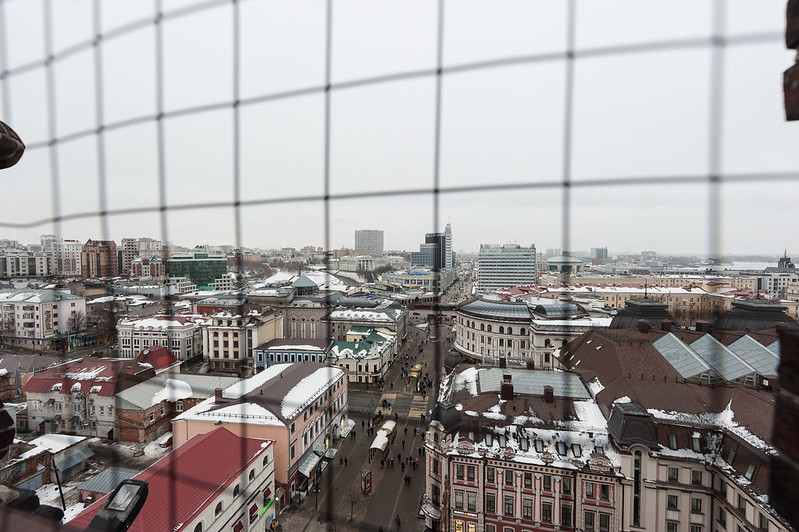China takes Tatarstan
In Tukaev province, construction work has begun on a huge logistic-commercial complex named after Den Xiaoping. The first step towards a 'special economic zone' that looks to the oil chemical industry in the region, where Hikvision, a Chinese company blacklisted for forced labour in Xinjiang, is already very active.
Moscow (AsiaNews) - The authorities of the Russian republic of Tatarstan have presented a report on the start of construction of a huge logistics and trade complex named after Den Xiaoping, in Tukaev province, on the border between Europe and Asia.
The first stage involves an investment of more than 20 billion roubles, around 250 million euros, to form a 'special economic zone', a centre called 'Alabuga', which is to be opened in the first half of 2024.
The set of facilities in the pipeline, like a series of Chinese boxes, will make up the 'Etilen 600' industrial park, which will offer all the necessary services for the short- and long-term parking of commercial cargo, loading and unloading, order management, transport composition and more.
Eventually, a movement of 100,000 containers per year is expected. Small- and medium-capacity chemical production will be set up, with access to raw materials from oil and gas extraction. The agreement between the Chinese 'Alabuga' and the Russian 'Sibur' dates back to August 2022, for a global investment of 1.3 trillion roubles.
Already next year, the logistics complex will be active, Kazan administrators assure, starting with a movement of eight trains per day. Petrochemicals will be transported to China, trying not to tread too much on Western sanctions decrees, which restrict the exchange of many chemical materials, while from Beijing will come consumer goods, and materials needed by Russian industry.
As Carnegie Fund contributor Aleksandr Gabuev confirms, 'China has a great interest in Tatarstan's oil chemistry, although it is difficult to say how much it will be able to compensate for the blockade of exports to Europe'. Russia and its 'energy' regions have no other real alternatives, however, and China is the only partner capable of approaching the standards of before the great break with the West.
The economy of Tatarstan relies on 'relations with giants', as the director of the Independent Institute of Social Policy Natalia Zubarevič points out, 'especially in the field of oil'. According to the Tatar republic's Ministry of Economy, until 2021 more than 25% of Kazan's budget relied on the extraction of energy materials, and 37.9% came from the processing and refining of oil, chemical materials and derivatives.
China now exports to Russia a very large share of semiconductors, chips and other materials for various purposes, which are already on the US sanctions lists, and therefore not so much concerned about the possible undermining of 'secondary sanctions'.
One of the most active Chinese companies in this field is Hikvision, which has already been blacklisted for its participation in persecution in Xinjiang, exploiting forced labour in 're-education camps' for Uyghurs, Kazakhs and even Tatars in what outside China is called 'East Turkestan'.
Hikvision, after all, is already very active in Tatarstan, where Chinese technologies are being applied for the 'safe cities' system, thanks to the system of video cameras for monitoring and identity recognition, especially in the vicinity of schools, kindergartens, parks and public meeting places. Penalties are circumvented by means of tried and tested schemes of rotating ownership of the many facilities involved.
In spite of these grandiose plans, many experts still believe that China does not intend to expand its cooperation with Russia too much, turning rather to the countries of Central Asia, but is now keeping a vast logistical and commercial network under control throughout the Asian part of the Russian Federation, 'putting its eggs in different baskets', as Gabuev explains. One of the most strategic areas for Chinese interests is the Volga and Ural regions, in the republics of Tatarstan, Bashkortostan and Chuvashia.
12/02/2016 15:14
07/02/2019 17:28







.png)










